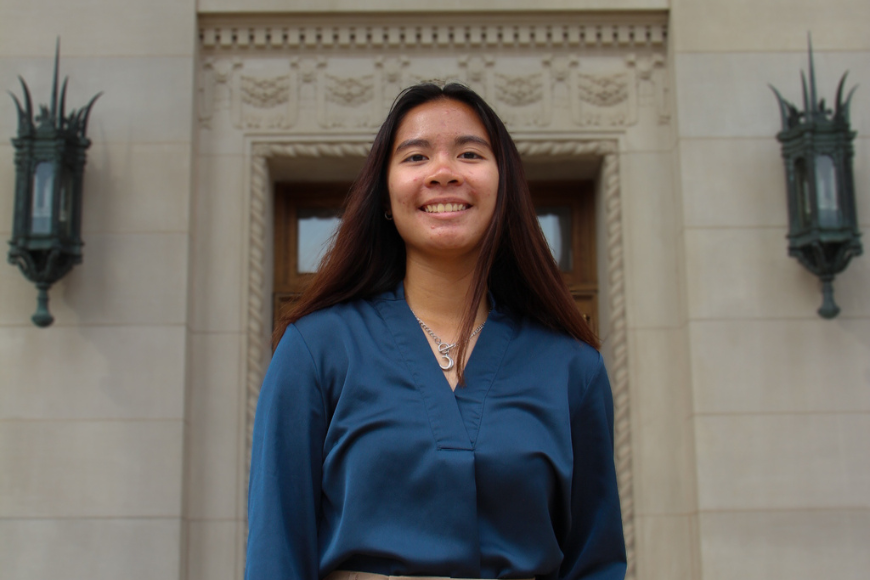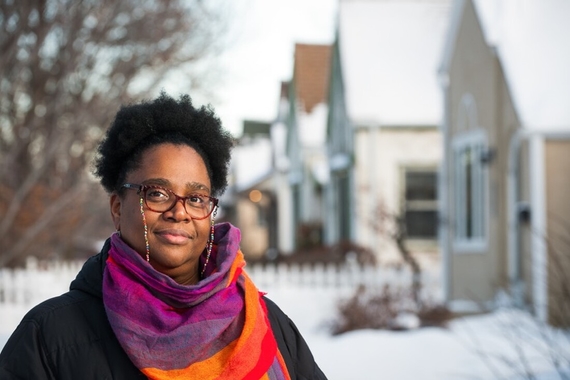Graduating Senior Spotlight: Q&A with Angel Enhaynes
Hometown: Lakeville, MN
Major(s) and Minor(s): Sociology of Law, Criminology, & Justice B.S.
Activities you are involved in: Pride of Minnesota Marching Band, Philippine Student Association (PSA) of Minnesota
What brought you to the University of Minnesota and how did you end up choosing your major(s) and minor(s)?
What initially brought me to the University of Minnesota was the Philippine Student Association. I had many family friends and relatives that were involved with the multicultural organization, some of whom even served on their executive board, and they talked a lot about how much they enjoyed being a part of that community. I wanted to follow their path and get involved with a Filipinx-interest organization to further celebrate my culture while pursuing a program that more closely aligned with my professional interests.
The marching band was also a significant factor in choosing a university, as I wanted to continue my involvement in marching band after high school, and the Pride of Minnesota offered a community for me to thrive and develop my student leadership skills.
I ended up choosing my Sociology LCJ major because of its focus on the intersections between sociology and criminology. I'm working to pursue a career in the criminal justice system, so it was only fitting that I chose this major and expand my knowledge of the field and passions.
What course would you recommend for other students in your major? And for students outside of your major, what course would be a good introduction to what you study?
I would recommend SOC 4113, Sociology of Violence: Bedrooms, Backyards, and Bars, for other Sociology and Sociology LCJ majors. I took the class with Prof. Michael Walker, and it was one of the most engaging and interesting sociology classes I've taken. You really wrestle with the challenges of defining violence and the intersections of violence with race, gender, and more.
For non-sociology majors, I would recommend SOC 1101, Law, Crime, and Punishment. It's an interesting introductory class to Sociology LCJ-recommended courses and topics that provides a foundation for theories and concepts in socio-legal and criminology studies. It was also the class that convinced me to switch to Sociology LCJ from my pre-major and reignited my passion for studying criminology.
Tell us about a class you still think a lot about.
SOC 4171, Sociology of International Law: Human Rights & Trafficking. I took this class in fall 2022 with Prof. Elizabeth Heger Boyle. This class had engaging content on globalization and class discussions on the structures and nuances of international law. However, what stuck out to me the most was the breadth of transnational crime topics that we covered, which was unlike any other criminology-focused class I had taken previously. This class sparked my interest in transnational crime research and desire to work for an agency that combats such issues on a large scale.
If you had the world's attention for 30 seconds, what would you say?
I would tell the world that it's okay to not fit the ideals and expectations set for you by others. It's okay to create your own path, because ultimately, it's your life and decisions. From my experience, it's better to take that first step towards something new, whether it be a new hobby or applying for a job that challenges you, than to regret not taking a missed opportunity to try something different. It won't be easy, differentiating yourself and your path from whatever plans may be set for you, but with hard work and resilience, everything will fall in place eventually.
If you could be any member on a TV show, who would you be?
I would be Special Agent Jessica Knight of the show NCIS. She's tenacious, loyal, and a valuable member of her team. Most importantly, she's a successful woman in law enforcement in a white, male-driven field that embraces her Asian American heritage. Like her character, I aspire to challenge social norms in that field while embracing my cultural identity and heritage as a proud Filipino American.



